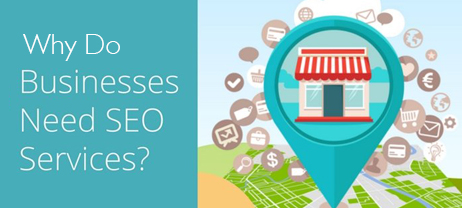- Have you ever wondered why do worldwide business leaders and marketers choose search engine optimisation as their marketing strategy?
- Do you know how search engine optimisation impacts ROI?
Let’s find out…
Investment
First and foremost, SEO is an investment that grows over time and improves the value of a website. It not only leads to high conversion rates, but also amplifies the overall credibility of a website.
Sales
SEO has the ability to improve sales. It not only engages visitors, but also guides them down to the sales funnel, which is the ultimate aim of website owners.
With the help of SEO, you can:
- Improve sales,
- Reduce attrition, and
- Improve satisfaction.
Marketing mix
Nobody can deny the fact that SEO gives incredible returns when mixed with other marketing strategies. That is why most marketing professionals combine it with social media marketing.
Buying cycle
Many marketers still believe that SEO cannot impact the buying cycle; but the fact is SEO can increase sales without expensive investment. It has the ability to meet business goals, whether your goal is long-term or short-term.
Facts:
- 75% of SEO is off-page and 25% is on-page.
- 91% of US Internet users search every month.
- Persuasive meta descriptions under 155 characters increase click through rates.
- The top 5 results get 75% of the clicks.
- 89% of customers begin their buying process with a search engine. (Biznology)
- Integrating PPC and organic SEO efforts results in a 25% increase in clicks and a 27% increase in profits over isolated or disconnected efforts. (Digital Marketing Philippines)
Pricing
SEO pricing varies on its magnitude, nature of business, target market, as well as activities involved (on-page and off-page).
If you have a big e-commerce website with thousands of products with global target, you need to spend heavy amount, still it would be affordable compared to other marketing strategies.
Importance
Marketers should involve SEO in their online marketing strategies because it plays a significant role in:
- Website structure,
- Domain names,
- Content management system (CMS),
- Page structure,
- URL syntax,
- Usability,
- Site assessment,
- Web design,
- Landing page optimisation,
- Testing,
- Content management, and
- Fixing errors and warnings.
Combination of on-page and off-page
Yes, SEO is a perfect blend of both on-page and off-page strategies. This usually involves tweaking of titles, descriptions, improving site’s navigation structure and website designs in order to make it user and search engine friendly.
Things to know:
- Search engines are dynamic (they change their equations frequently).
- SEO is an ongoing process.
- SEO helps to maximise traffic.
- SEO can maximise your business in minimum amount of time.
- Both long-tail and short-tail keywords are the important part of SEO strategy.
Hence, it is clear that online businesses need search engine optimisation to increase their exposure as well as revenues.





